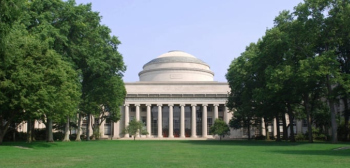伍斯特理工学院
About
WPI places a high premium on excellence in undergraduate education, with rich student-faculty interaction and a distinct, rigorous project-based curriculum. In addition to filling a humanities and arts requirement, each WPI undergraduate must complete at least two significant projects, one in the major field of study and one that addresses an open-ended problem at the intersection of science, technology, and society. Through these projects, students demonstrate their proficiency as they apply their classroom knowledge to real-world problems. They gain an appreciation for how their work has an impact on a local, national, and even global level. First-year students may participate in the Great Problems Seminar, a two-course introduction to university-level research and projects focused on themes of current global importance.
The university's innovative Global Projects Program provides students the opportunity to make a difference in communities and organizations around the world in one of the more than 45 project centers throughout the Americas, Africa, Asia-Pacific, and Europe. Each incoming student receives a $5,000 global scholarship so that financial barriers to studying abroad are removed.
Working independently or collaboratively with faculty or industry partners, students are challenged to engage in research that matters, offering contributions that lead to breakthroughs in problems facing society. Students are inspired to consider the big picture and to think like entrepreneurs. They look for solutions that aren’t always obvious but will have the greatest technical and social impact. Faculty members work collaboratively with students on interdisciplinary research that seeks solutions to important and socially relevant problems in fields as diverse as life sciences, bioengineering, energy, information security, materials processing, and robotics.
About
WPI places a high premium on excellence in undergraduate education, with rich student-faculty interaction and a distinct, rigorous project-based curriculum. In addition to filling a humanities and arts requirement, each WPI undergraduate must complete at least two significant projects, one in the major field of study and one that addresses an open-ended problem at the intersection of science, technology, and society. Through these projects, students demonstrate their proficiency as they apply their classroom knowledge to real-world problems. They gain an appreciation for how their work has an impact on a local, national, and even global level. First-year students may participate in the Great Problems Seminar, a two-course introduction to university-level research and projects focused on themes of current global importance.
The university's innovative Global Projects Program provides students the opportunity to make a difference in communities and organizations around the world in one of the more than 45 project centers throughout the Americas, Africa, Asia-Pacific, and Europe. Each incoming student receives a $5,000 global scholarship so that financial barriers to studying abroad are removed.
Working independently or collaboratively with faculty or industry partners, students are challenged to engage in research that matters, offering contributions that lead to breakthroughs in problems facing society. Students are inspired to consider the big picture and to think like entrepreneurs. They look for solutions that aren’t always obvious but will have the greatest technical and social impact. Faculty members work collaboratively with students on interdisciplinary research that seeks solutions to important and socially relevant problems in fields as diverse as life sciences, bioengineering, energy, information security, materials processing, and robotics.
University highlights
- 2012#601+
- 2014#601-650
- 2015#651-700
- 2016#551-600
- 2017#601-650
- 2018#651-700
- 2019#601-650
- 2020#601-650
- 2021#701-750
- 2022#751-800
- 2023#801-1000
- 2024#851-900
- 2025#901-950
- 2026#851-900
Campus locations
Worcester Polytechnic Institute,
100 Institute Road , Worcester , Massachusetts , United States , 01609
Similar Universities
萨凡纳艺术与设计学院
516 Drayton St, Savannah
德克萨斯大学阿灵顿大学
701 S. Nedderman Drive, Arlington
Seton Hall University
400 S Orange Ave, South Orange, South Orange
罗彻斯特理工大学 (RIT)
Lomb Memorial Drive, Rochester
乔治华盛顿大学商学院
George Washington University, Washington D.C.


















